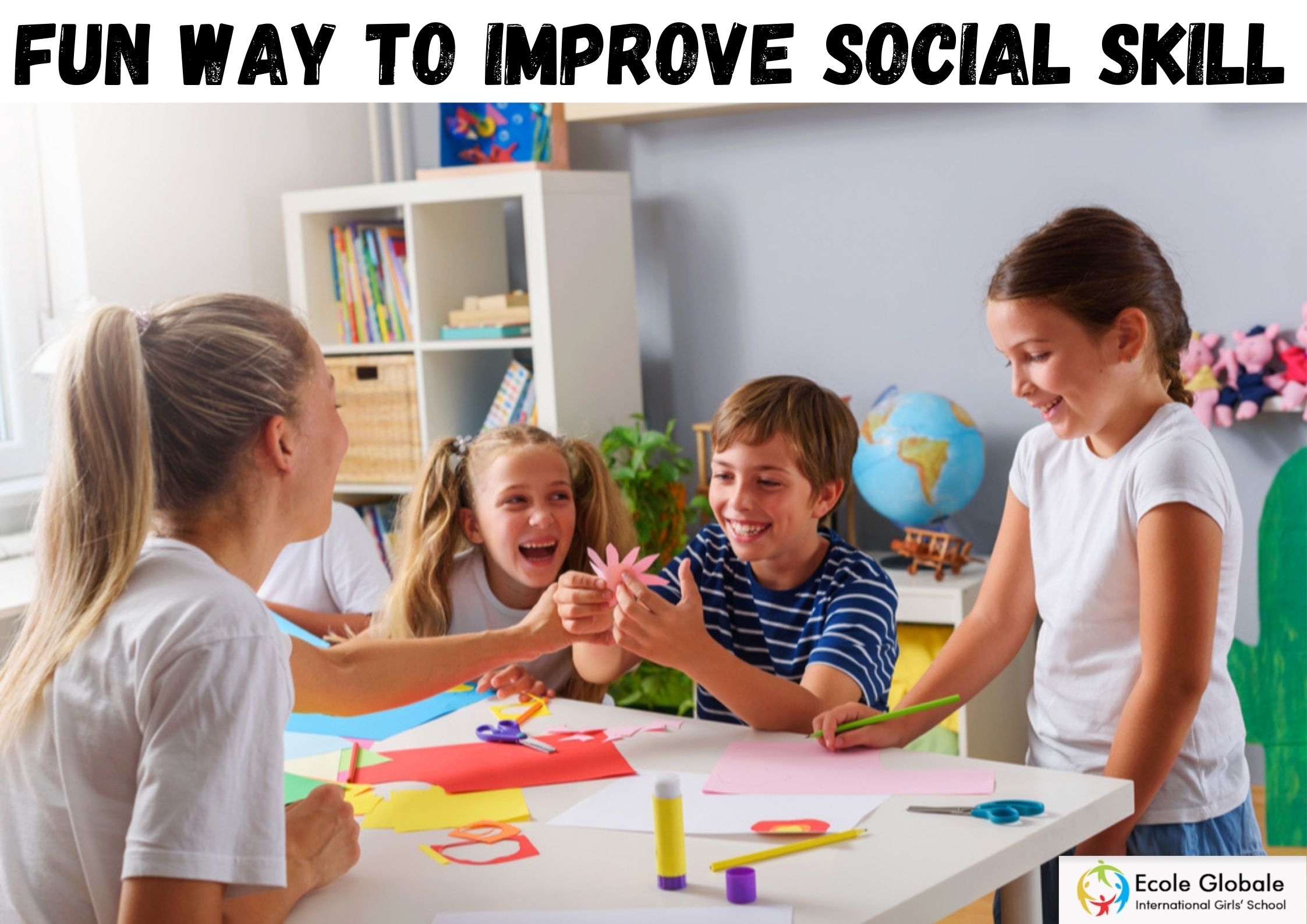Whether your child is a toddler, preschooler, or has just started kindergarten, socialization activities and games are a terrific method for him to learn how to behave with his peers. Taking turns, controlling emotions, and understanding body language are all abilities that games can teach. Teaching social skills to students has become crucial nowadays Use these evidence-based social skills exercises to help your kid learn how their actions affect others and develop social behaviors. They can become more self-sufficient and establish healthy relationships as a result of these games.
FEW FUN ACTIVITIES ARE:
COMPETITION OF STARING
In talking, many children have difficulty keeping eye contact. A staring contest can help children make and maintain eye contact in a way that allows them to concentrate on the job at hand rather than trying to communicate at the same time. You can start small if your youngster is still uncomfortable. Place a sticker on your brow for them to see, and then work your way up to a conversation.
THE BALL SHOULD BE ROLLED
It’s never too early to begin developing social skills, and a game of roll the ball is suitable for toddlers. Children take turns passing a ball back and forth, building the groundwork for future social skills. Kids learn to use this skill in a variety of situations, such as taking turns in speaking or participating in group activities. They also learn self-control by directing the ball toward a friend and rolling it hard enough to reach them while using only a tiny amount of force.
PLAYTIME IN THE VIRTUAL WORLD
Even if your child is unable to have in-person play dates, they can still spend time together via video chat and other online platforms. By glancing at their friend on the screen during video chats, children are able to make eye contact. Adapting to new settings becomes a valuable skill, whether in social interactions or the future workplace. Problem-solving abilities improve as a result of coming up with new methods to spend time together, which adds to a set of important social skills.
CHARADES OF EMOTIONS
Emotion charades entail writing various emotions on paper strips. Your child chooses from a hat or a bucket. They must next attempt to enact that emotion. Children can learn to understand feelings through facial and body signals by playing emotion charades. You can also adapt social skills activities like these to make a Pictionary-style game where kids sketch emotions. Children learn emotion management through depicting and acting out emotional expressions and reactions in social skills exercises. This is vital for building strong connections and sharing sentiments.
GAMES THAT IMITATE FACIAL EXPRESSIONS
You’re teaching social skills with expressions when you play this game with your youngster. Mimicking your expressions helps your child comprehend what certain expressions represent and recognize them in real-life situations. When socially challenged children learn to read facial expressions, they become more at ease in circumstances where they are present.
GAME WITH A THEME
The topic game can be played in a variety of ways. Still, the most typical one involves picking a topic and listing objects that fit into that category using each letter of the alphabet. For instance, if the topic is animals, you might come up with:
(A) Aardvark
(B) Baboon
(C) Chicken
The topic game helps children to focus on one issue and follow instructions until the activity is completed. It also allows children to build connections and be more creative when writing letters with limited possibilities.
PARTICIPATE IN THE CONVERSATION
Step Into Conversation is a card game designed for autistic youngsters. The game includes planned social skills activities such as starting a conversation and discussing specified topics using cards. The game teaches kids how to communicate effectively with others and how to hold a conversation with perspective and empathy. It instills good manners and self-control in children by demonstrating how to initiate a conversation nicely, when to speak and when to listen. You may provide structure to chats by utilizing socializing games like this one to help them learn the social skills they’ll need to deal with various circumstances in their daily lives.
STORIES MADE UP ON THE SPOT
Even when they are not participating in social skills activities, many children tell stories. Improvised stories bring a new challenge to the mix, requiring people to collaborate and create a story without planning ahead of time. Place cards with pictures or texts face down for this activity. The youngster chooses three of these cards, and in their tale, they must mention these things or topics. When all of the cards have been used up, or the children have finished their story, the game is over. You can perform this activity as a group game in which the kids take turns adding to the tale and building on each other’s ideas, or you can have one child tell you their narrative.









